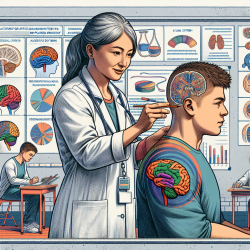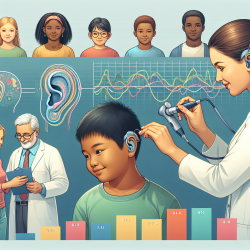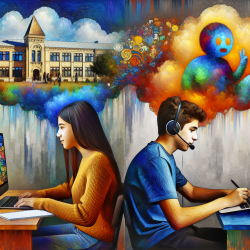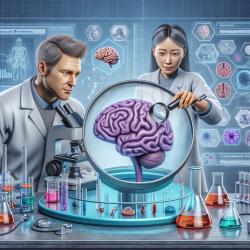Understanding the Educational Needs of Youth with Acquired Brain Injury
Acquired brain injuries (ABIs), whether traumatic or non-traumatic, can significantly impact a child's cognitive, emotional, and academic performance. Practitioners working with these students must be well-versed in the unique challenges they face and the supports they require to thrive in educational settings.
Key Findings from Recent Research
The research article "Back to School: Academic Functioning and Educational Needs among Youth with Acquired Brain Injury" provides a comprehensive review of the neuropsychological and psychiatric outcomes of pediatric brain injury. The study highlights the increased risk of cognitive and emotional difficulties that can hinder academic achievement. Key areas affected include:
- Executive Functioning: Skills such as impulse control, self-monitoring, and cognitive flexibility are often disrupted, impacting a child's ability to regulate thoughts and behaviors.
- Processing Speed and Attention: Many children with ABIs struggle with maintaining attention and processing information quickly, which can affect learning and classroom participation.
- Memory and Learning: Difficulties with memory retention and retrieval can make it challenging for students to acquire new information and skills.
Implementing Research Outcomes in Practice
To improve educational outcomes for students with ABIs, practitioners should consider the following strategies:
- Individualized Education Plans (IEPs): Develop IEPs that are tailored to the specific cognitive and emotional needs of each student, incorporating strategies that address executive functioning, attention, and memory challenges.
- Collaborative Communication: Foster effective communication between medical professionals, educators, and families to ensure that all parties are informed about the student's needs and progress.
- Professional Development: Engage in ongoing training to stay updated on best practices for supporting students with ABIs, including legal requirements under IDEA and Section 504.
Encouraging Further Research
While significant progress has been made in understanding the educational needs of students with ABIs, there is still much to learn. Practitioners are encouraged to engage in further research to explore:
- The long-term academic trajectories of students with different types of brain injuries.
- The effectiveness of various intervention strategies in improving academic outcomes.
- The role of technology in supporting learning and communication for students with ABIs.
By continuing to investigate these areas, practitioners can contribute to the development of more effective educational supports and interventions for students with acquired brain injuries.
To read the original research paper, please follow this link: Back to School: Academic Functioning and Educational Needs among Youth with Acquired Brain Injury.










